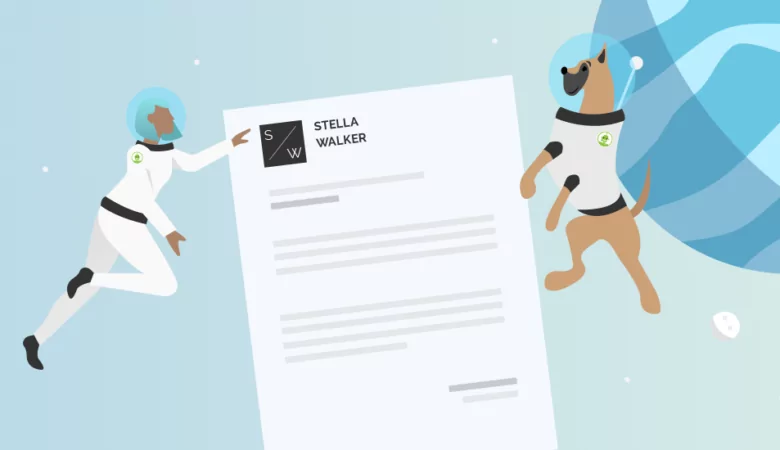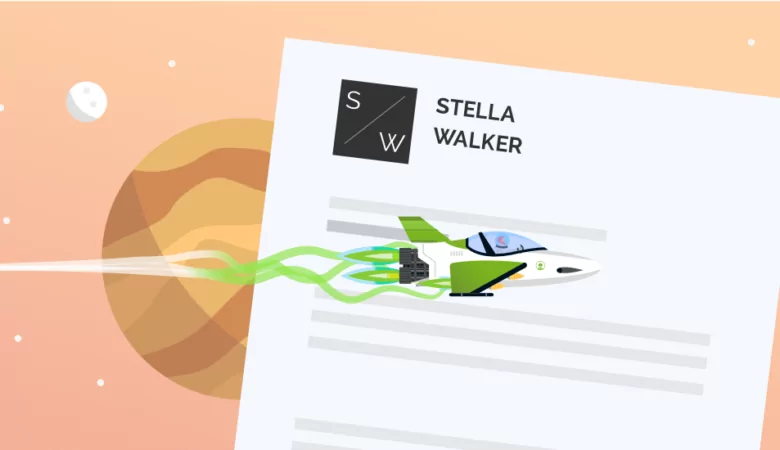If someone has asked you to write a reference letter, your response could help them get a job. How do you write a great reference letter?

How to Write an Effective Reference Letter
Reference Letter
When talking about reference letters, oftentimes articles discuss how an individual might collect reference letters to use in their own job search. However, if you’ve been asked to write a reference letter, you also might not know how to write one for the best results. Whether you’re a coworker, a manager, or even just a friend, you need to know how to write a professional reference letter for someone else. Here’s everything you need to know about writing a referral letter.

What Is a Reference Letter?
A reference letter, also called a letter of recommendation or letter of reference, is a letter that you write to vouch for someone else. During a job search, an individual needs to present a variety of documents that confirm they’re a good worker and they’re right for a specific job, such as cover letters and resumes. However, especially for a higher-level job, a potential employer may also ask for reference letters.
There are many types of reference letters. The most common is a professional reference letter, which is written by someone who knows you professionally, either a co-worker or a manager. It showcases your work ethic and best qualities on a business level. Another type of letter is the personal reference letter or character reference letter, typically written by a friend and detailing certain personal attributes that they admire in you.
How to Structure Your Reference Letter
The correct structure for a reference letter is similar to the structure for a cover letter. In fact, a reference letter should generally resemble a cover letter. Here’s how most letter of recommendations are structured.
Header
First of all, remember to include the proper salutation. Mimic the cover letter header by including your contact information with your phone number and professional profile links, like your LinkedIn. Then, address the hiring manager by name, like “Dear Mr. Smith,” rather than using a generic opener like “To Whom It May Concern.”
Introductory hook
The opening of your reference letter needs to really hook the hiring manager. A good reference letter example opening could be: “I knew John was a uniquely incredible applicant from the first time I interviewed him for a job.” This type of priase invites the hiring manager to want to keep reading your reference letter.
Description of your relationship with the applicant
Next, describe how you met the applicant or how you know them. You can also include the company name where you and the applicant worked together. This can be very direct or it can be slightly more indirect, as long as it’s clear where you know the applicant from and how you became acquainted. For example, you may say something direct like, “I worked with John in graduate school when he asked me for writing tips, and we quickly became good friends.” Or you can write something more indirect like, “When my company hired John to join our team,” which indicates that John was an employee at your workplace.
General overview of skills
Next, it’s important that you include some of the skills that the applicant possesses. You want to highlight the most important skills that you feel a particular applicant excels in. Ask the applicant for the job title they’re pursuing, so you know what skills to emphasize. Communication skills may be very important in a human resources job, but not so much if you’re referring someone for a data entry job.
Closing and open request for contact
Finally, it’s a good idea to let the hiring manager know that if they need any additional information, they can reach out to you at any time. As a job reference, you’re indicating that you’ll be open to whatever further questions the hiring manager might have about the individual you’re providing a reference for. Acknowledge that in the closing of the letter.
A Look Into What Hiring Managers Want To See
A good recommendation letter needs to include more information about who you are in whatever context the hiring manager is looking for. For example, if someone is applying for a manager position, the recruiter wants to know that they’re a good leader and will do well when in charge of other people. If you’re writing a letter for someone who is applying to graduate school, the acceptance board wants to see that they’re a team player with a bright future ahead of them. It’s all about providing specific examples that work for the person who needs the letter.
FAQ: Reference Letter
It’s typically best to stick to the same length you would make a cover letter. The reference letter should be between 250-350 words or around half a page to three-quarters of a page. Reference letters will often err on the shorter side, especially because you’ll directly note that the hiring manager can reach out to you if they have any questions you didn’t answer.
If you’ve agreed to write a reference letter, you’ve agreed to mention positive traits about an individual, not negative ones. If you don’t think you can write a completely positive reference letter, don’t agree to write one. On the other hand, it’s also definitely not recommended to lie about the individual. Be truthful and honest, but only mention the positive attributes you have to say about the candidate.
Reference letters can be the deciding factor in whether or not someone gets a job. If someone is applying to a job or a college and reference letters are necessary, those letters are going to have an actual impact on who gets the job. This is why it’s so important to write a good-quality reference letter if you’ve agreed to do it for someone.








